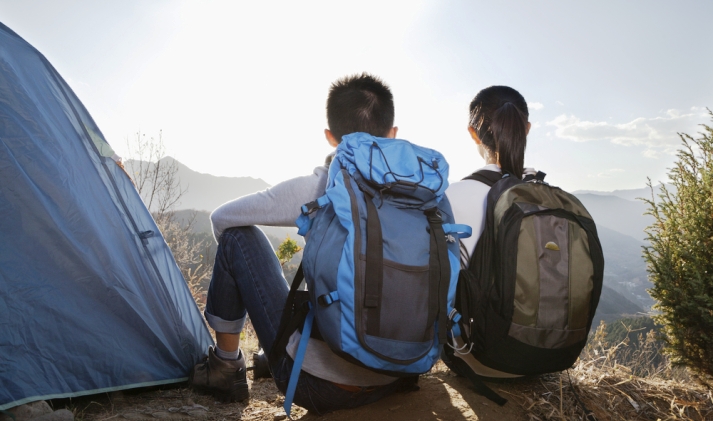
Long Hua, a 31-year-old chemical engineer in Tianjin, is a card-carrying member of China’s rising middle class. Contrary to stereotype, though, Long does not own a Rolex wristwatch nor does he conspicuously consume in other ways.
“I don’t spend money on luxury goods,” Long says. An outdoor enthusiast and travel columnist,heputs his disposable income toward hiking and camping gear and outdoor apparel from specialty overseas brands like Mountain Hardware and Lafuma. Long on weekendsis more likely to be found on a trail than at the mall, but that doesn’t make him an oddball. In a trend that got started as far back as the 2008 Olympic Games in Beijing, millions of Chinese are aspiring to live healthier lifestyles by participating in fitness activities and outdoor sports.
While some luxury retailers have seen sales hit by China’s economic slowdown and the government’s corruption crackdown, Chinese consumers are spending more on all kinds of sporting goods and fitness gear.
For example, on Alibaba Group’s Tmall.com, China’s largest B2C online-shopping website, the Sports and Outdoorapparel category has been the fastest growing of all apparel categories this year. During Alibaba’s 11.11 Global Shopping Festival on Nov. 11, Tmall sold some 3 million pairs of running shoes alone, while the sports and outdoor clothing and equipment category was among the top 5 in overall sales.
Tmall’s results reflect a general shift in lifestyle choices among members of China’s middle class, driven by increased disposable income. Research firm Conlumino predicted that despite the sluggish economic conditions, the retail market for sports and leisure equipment in China is likely to grow at an annual average rate of 13.2 percent from 2014 to 2019; over the same period, online spending in the category will see a CAGR of 30.70 percent, Conlumino predicted.
Matthew Crabbe, Asia-Pacific director at marketing research group Mintel, says the concept of luxury spending is expanding in China to become “a wider-range sector beyond jewelry, watches and handbags.” Nowadays, consumers are increasingly spending big bucks on high-end outdoor gear and apparel, as well as on upscale home furnishings and luxury travel, he said.
Wang Fei, manager of Tmall’s sports and outdoor gear category, said the website is plugging into this trend by recruiting well-known international brands, which have a strong reputation for quality among Chinese consumers. Asics, New Balance, and SAUCONY all perform well on Tmall, Wang said, even though many of their running shoes sell at relatively high prices of $125 to $235. Nike, Adidas, SKECHERS, and Under Armour all have Tmall storefronts. Mammut, a Swiss mountain-sports specialist, recently joined the platform, which already hosts well-known outdoors brands including The North Face, Columbia and Patagonia.
But it isn’t just sneakers and down jackets that are selling well. Other hot fitness and outdoor products on Tmall include fishing gear, and mountain and road bikes. And for those preferring indoor pursuits, Canadian yoga apparel maker Lululemon recently opened a Tmall store, joining a product category that grew by more than 100 percent on Nov.11 compared with results during the 24-hour event last year, the fastest rate of all Tmall sports categories. Tmall says that consumers purchased 180,000 yoga mats and 150,000 pieces of yoga wear during this year’s 11.11 sale.
To introduce more consumers to the great outdoors, Tmall plans to launch more education programs next year to advise consumers how to select sports and outdoor equipment that meet particular needs, Wang said. The website will soon roll out an all-inclusive ski holiday travel package including airline tickets, hotel accommodations, skiing equipment and apparel, and skiing lessons, to meet Chinese consumers’ rising fever for winter sports.
“Chinese people have enough money, but they lack access and knowledge to get quality goods,” Wang said. “There is huge potential.”




